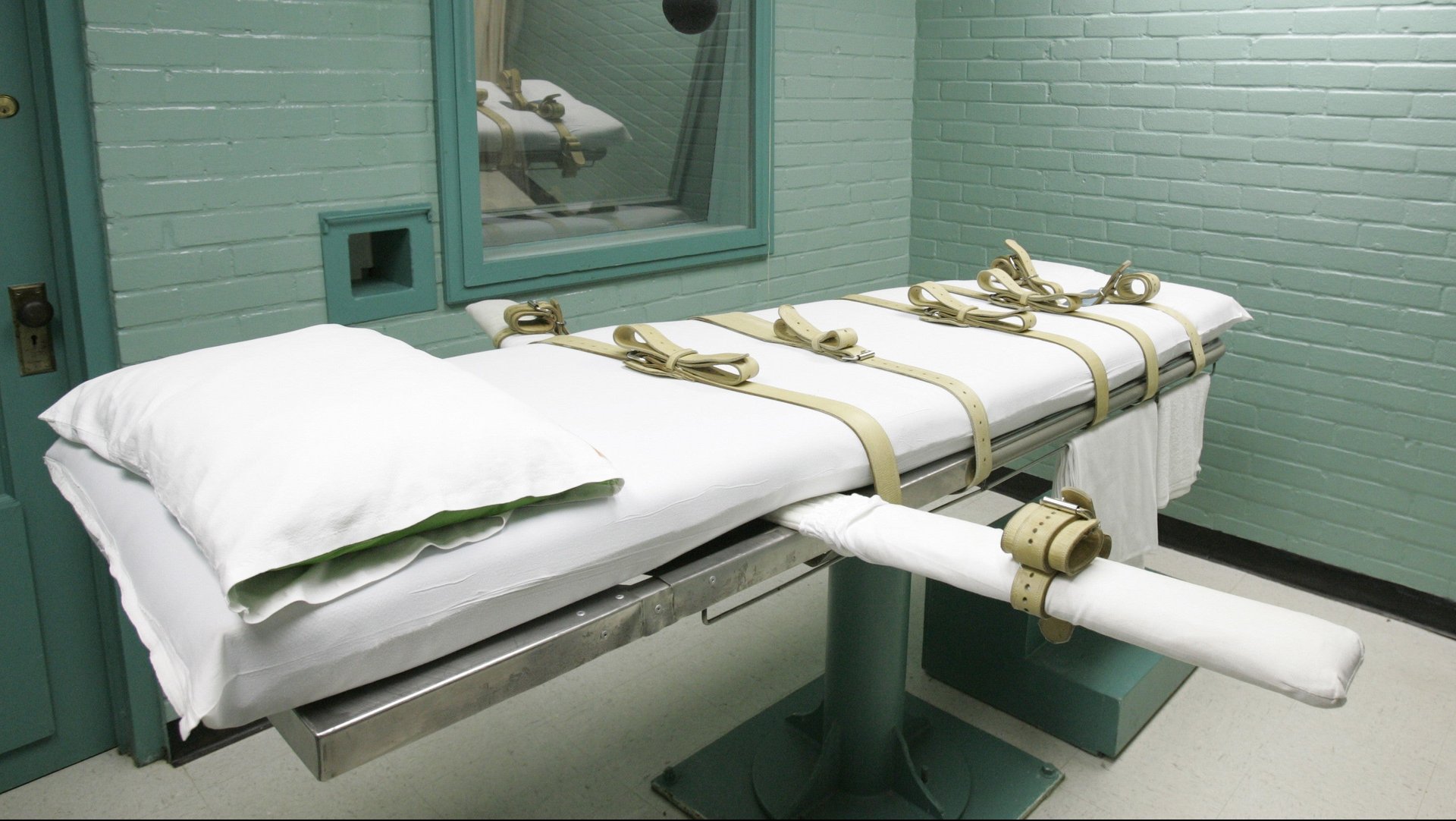The US Supreme Court backs a controversial lethal injection drug
A drug cocktail that has been used during several botched executions does not violate the US constitution’s ban on cruel and unusual punishment, the US Supreme Court said today in a 5-4 ruling.


A drug cocktail that has been used during several botched executions does not violate the US constitution’s ban on cruel and unusual punishment, the US Supreme Court said today in a 5-4 ruling.
Several Oklahoma death row inmates brought the case to the high court, arguing that midazolam, a sedative used by the state, does not effectively induce unconsciousness during the lethal injection process. If an inmate is not in a deep coma, they argued, the other two drugs in the concoction, which paralyze an inmate and stop the action of his heart, would cause them undue pain and suffering.
Oklahoma recently carried out two botched executions with the cocktail: in one, Clayton Lockett regained consciousness, groaning and writhing before his death; in the other, inmate Charles Warner said his body was “on fire.”
The majority opinion, delivered by Justice Antonin Scalia, said that the prisoners failed to identify a better method of execution that “entails a lesser risk of pain”:
And because some risk of pain is inherent in any method of execution, we have held that the Constitution does not require the avoidance of all risk of pain. After all, while most humans wish to die a painless death, many do not have that good fortune. Holding that the Eighth Amendment demands the elimination of essentially all risk of pain would effectively outlaw the death penalty altogether.
Two of the dissenting justices, Stephen Breyer and Ruth Bader Ginsburg, asked for a full briefing on the constitutionality of the death penalty “rather than try to patch up the death penalty’s legal wounds one at a time.”
Justice Sonya Sotomayor in her dissent said that the court’s ruling ”leaves petitioners exposed to what may well be the chemical equivalent of being burned at the stake.” She also emphasized that prisoners should not be responsible for choosing their method of execution:
Petitioners here had no part in creating the shortage of execution drugs; it is odd to punish them for the actions of pharmaceutical companies and others who seek to disassociate themselves from the death penalty.
Midazolam is used instead of a barbiturate, whose supplies have run out as manufacturers refuse to produce it for death penalty.